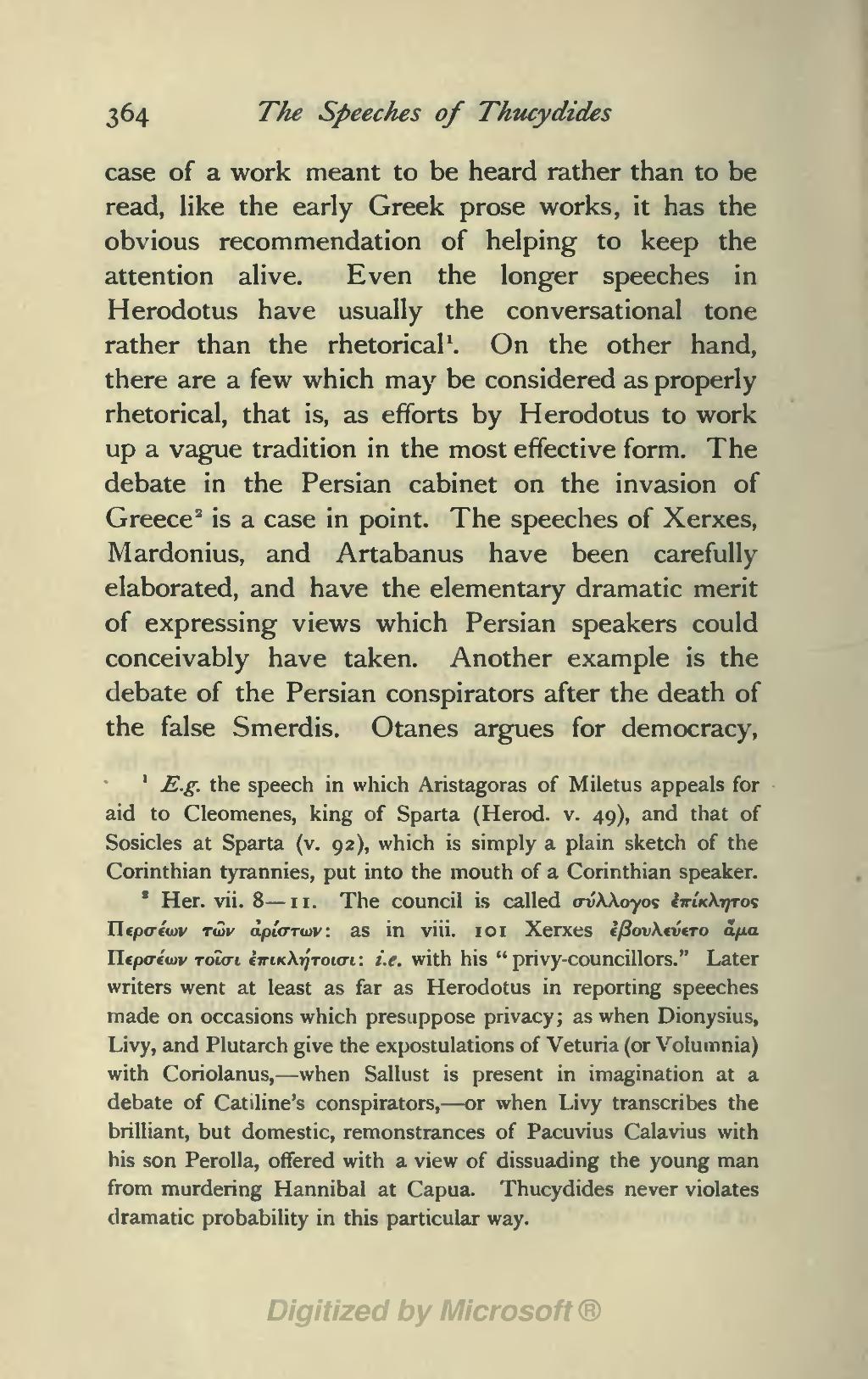case of a work meant to be heard rather than to be read, like the early Greek prose works, it has the obvious recommendation of helping to keep the attention alive. Even the longer speeches in Herodotus have usually the conversational tone rather than the rhetorical[1]. On the other hand, there are a few which may be considered as properly rhetorical, that is, as efforts by Herodotus to work up a vague tradition in the most effective form. The debate in the Persian cabinet on the invasion of Greece[2] is a case in point. The speeches of Xerxes, Mardonius, and Artabanus have been carefully elaborated, and have the elementary dramatic merit of expressing views which Persian speakers could conceivably have taken. Another example is the debate of the Persian conspirators after the death of the false Smerdis. Otanes argues for democracy,
- ↑ E.g. the speech in which Aristagoras of Miletus appeals for aid to Cleomenes, king of Sparta (Herod. v. 49), and that of Sosicles at Sparta (v. 92), which is simply a plain sketch of the Corinthian tyrannies, put into the mouth of a Corinthian speaker.
- ↑ Her. vii. 8—11. The council is called σύλλογος ἐπίκλητος Περσέων τῶν ἀρίστων: as in viii. 101 Xerxes ἐβουλεύετο ἅμα Περσέων τοῖσι ἐπικλήτοισι: i.e. with his "privy-councillors." Later writers went at least as far as Herodotus in reporting speeches made on occasions which presuppose privacy; as when Dionysius, Livy, and Plutarch give the expostulations of Veturia (or Volumnia) with Coriolanus,—when Sallust is present in imagination at a debate of Catiline's conspirators,—or when Livy transcribes the brilliant, but domestic, remonstrances of Pacuvius Calavius with his son Perolla, offered with a view of dissuading the young man from murdering Hannibal at Capua. Thucydides never violates dramatic probability in this particular way.
